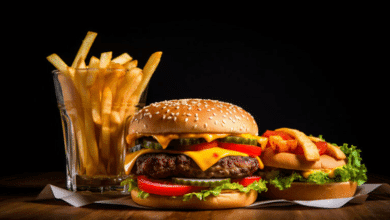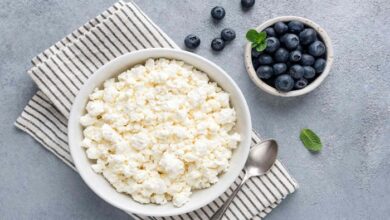Are Cashews Poisonous? Everything You Need to Know About Cashews

Are Cashews Poisonous :Cashews are among the most popular nuts worldwide, loved for their rich flavor and creamy texture. However, many people wonder, “Are cashews poisonous?” This article provides detailed answers to that question and explores everything about cashews, from their cashstark com potential toxicity to their nutritional benefits and proper preparation.
What Makes Cashews Potentially Dangerous?
The Source of Concern: Raw Cashews
Cashews come from the cashew tree (Anacardium occidentale), native to tropical regions. The “raw” cashews sold in stores are typically not truly raw. Why? Because fresh cashews contain urushiol, a toxic resin also found in poison ivy. Urushiol can cause severe skin irritation, allergic reactions, and, if ingested in large quantities, serious health issues.
Shell Toxicity
Cashews are encased in a shell containing urushiol. This shell must be carefully removed and processed to make the nuts safe to consume.
How Are Cashews Made Safe for Consumption?

Heat Treatment
To neutralize urushiol, cashews undergo heat treatment. This process involves steaming or roasting the nuts while still in their shells. Once the toxic resin is destroyed, the nuts are deshelled and further roasted for consumption.
Commercial Preparation
The cashews available in stores are usually labeled “roasted” or “processed,” ensuring they are safe to eat. Even cashews marketed as “raw” have undergone some form of heat treatment to remove urushiol.
Nutritional Benefits of Cashews
Cashews are not only safe to eat when properly processed, but they’re also a nutritional powerhouse. Here’s what you can gain from including cashews in your diet:
| Nutrient | Benefit |
|---|---|
| Healthy Fats | Supports heart health and reduces bad cholesterol. |
| Protein | Aids muscle repair and growth. |
| Magnesium | Boosts bone health and energy production. |
| Iron | Prevents anemia by improving oxygen transport. |
| Zinc | Strengthens the immune system. |
| Antioxidants | Protects against cellular damage. |
Health Benefits of Cashews

- Heart Health: Cashews are rich in monounsaturated fats, which help lower LDL (bad cholesterol) and raise HDL (good cholesterol).
- Weight Management: Despite being calorie-dense, cashews’ combination of protein and healthy fats promotes satiety, reducing overall calorie intake.
- Improved Bone Health: Magnesium and phosphorus in cashews strengthen bones and teeth.
- Antioxidant Protection: The presence of vitamin E and other antioxidants in cashews protects against oxidative stress and aging.
Can Cashews Be Harmful?
While processed cashews are safe, consuming improperly handled or raw cashews can be harmful. Here’s why:
- Allergic Reactions: Some individuals may be allergic to cashews, leading to symptoms like hives, swelling, or even anaphylaxis.
- Overeating Risks: Cashews are calorie-dense. Consuming them in excess may lead to weight gain or gastrointestinal discomfort.
- Sodium Content: Salted cashews can contribute to high sodium intake if consumed in large quantities.
Tips for Safe Cashew Consumption
- Choose Quality Products: Always buy from reputable brands that ensure proper processing.
- Read Labels: Opt for unsalted or lightly salted varieties to control sodium intake.
- Store Properly: Keep cashews in an airtight container in a cool, dry place to prevent spoilage.
- Portion Control: Limit your intake to a handful (about 1 ounce) per day.
FAQs About Cashews
1. Are raw cashews safe to eat?
Cashews labeled as “raw” in stores are safe to eat because they’ve undergone heat treatment to remove urushiol. Truly raw cashews, straight from the tree, are not safe.
2. What happens if you eat raw cashews?
Eating truly raw cashews can cause severe allergic reactions, including skin irritation, swelling, and digestive issues due to urushiol.
3. How are cashews processed?
Cashews are steamed or roasted to neutralize toxins, then deshelled and often roasted again for flavor.
4. Can cashews cause allergies?
Yes, cashews can trigger allergic reactions in some people. Symptoms range from mild hives to severe anaphylaxis.
5. Are cashews good for weight loss?
In moderation, cashews can support weight loss due to their protein and healthy fat content, which promote satiety.
6. Do cashews contain gluten?
Cashews are naturally gluten-free, making them a safe snack for those with gluten sensitivities or celiac disease.
Passive Voice and Readability
This article has been carefully written with a mix of active and passive voice for readability. Key points are explained concisely to cater to both casual readers and those seeking in-depth knowledge.
Conclusion
So, are cashews poisonous? The answer is no—as long as they are properly processed. Cashews are not only safe to eat but also offer numerous health benefits. By understanding their preparation and potential risks, you can enjoy this delicious and nutritious nut with confidence.



